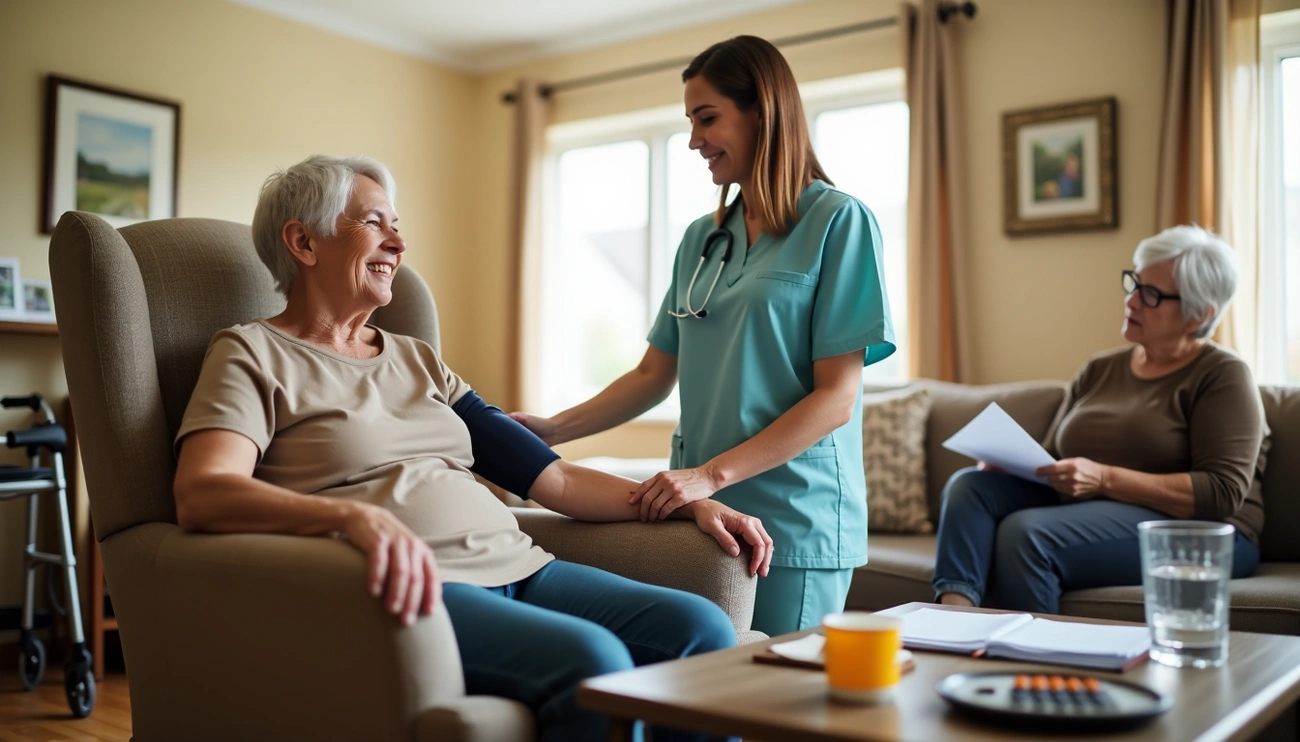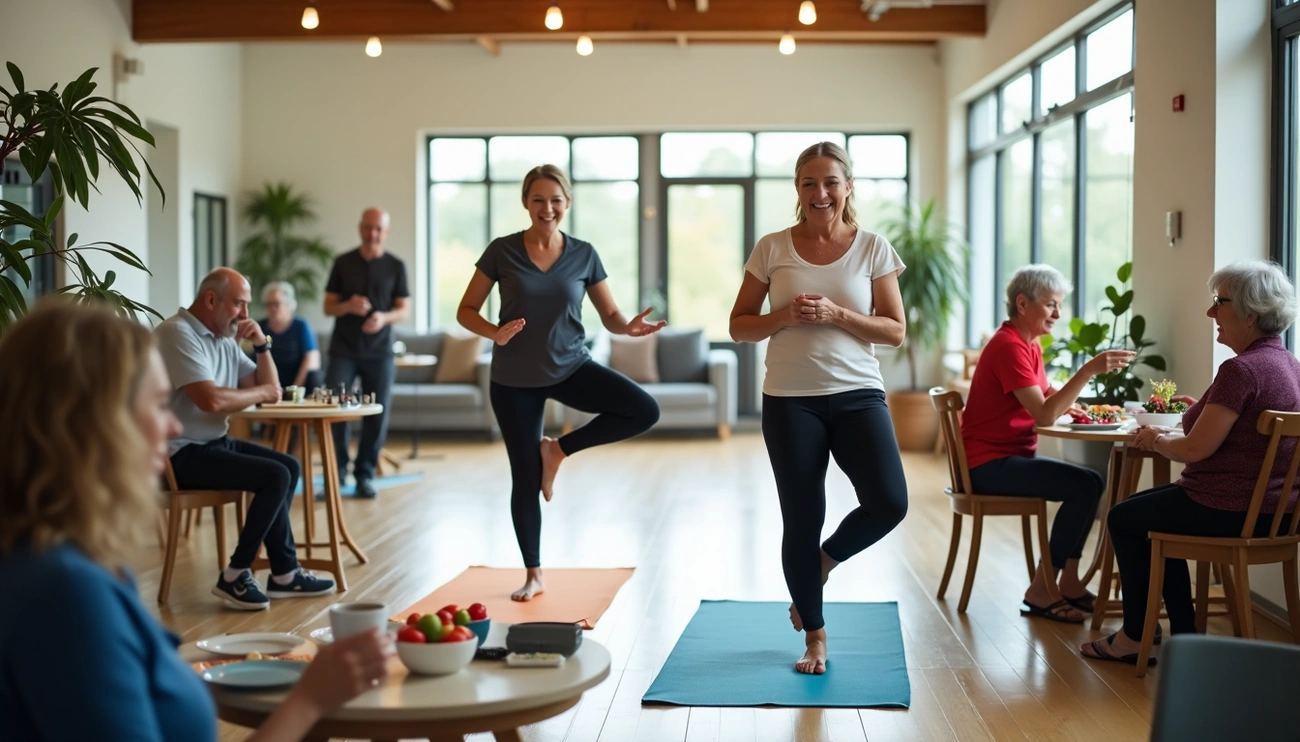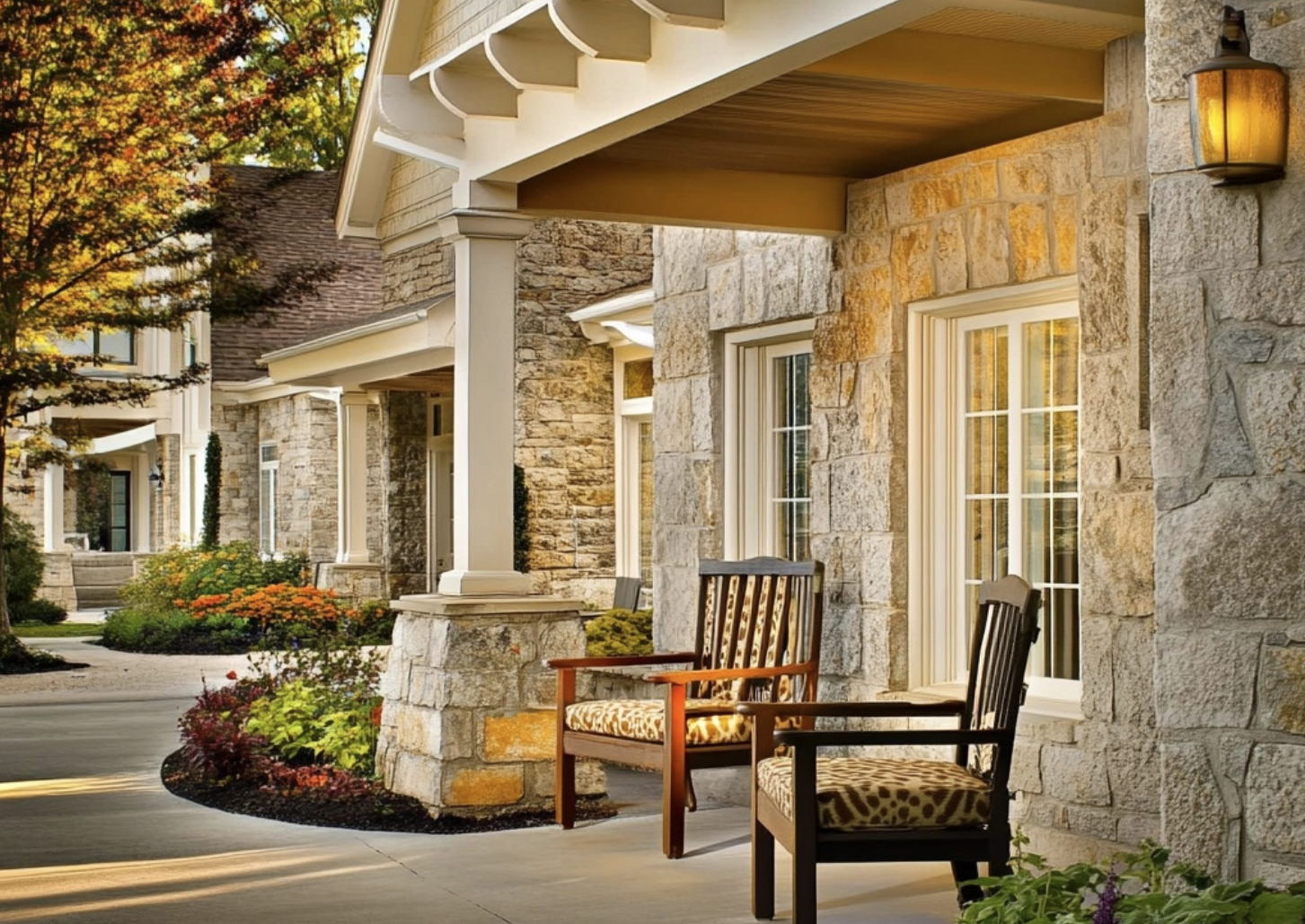The average three-day hospital stay now costs $30,000 in New Jersey, forcing many seniors to choose between medical care and basic necessities. State data shows 90% of older adults require at least one daily prescription medication, pushing nj grants for seniors from helpful to essential.
New Jersey’s financial assistance programs offer crucial support for elderly residents living on fixed incomes. The state’s prescription coverage reduces medication copays to $5-$7, while utility assistance provides annual credits up to $225. These programs help seniors maintain independence despite rising healthcare and living costs.
This guide examines 15 state assistance programs available to New Jersey seniors throughout 2025. Each section details specific eligibility requirements, benefit amounts, and application procedures for healthcare, housing, and daily living support programs.
Pharmaceutical Assistance to the Aged and Disabled (PAAD)
The Pharmaceutical Assistance to the Aged and Disabled (PAAD) program helps 118,000 New Jersey residents afford vital medications. State records show the program significantly reduces out-of-pocket costs through direct state funding.
What PAAD Covers for Seniors
PAAD beneficiaries pay $5 for generic prescriptions and $7 for brand-name medications. The program covers FDA-approved legend drugs, insulin supplies, and injectable medications for conditions like multiple sclerosis. Medicare prescription plan members might pay even less when their plan’s copayment falls below PAAD’s $5 threshold.
The program excludes diabetic testing supplies such as strips and lancets. Medications must be purchased within New Jersey, and pharmaceutical companies must participate in the state’s rebate program.
PAAD Eligibility Requirements for 2025
The Department of Human Services recently expanded PAAD income limits by $10,000. Current eligibility requires:
- New Jersey residency
- Age 65 or older OR 18-64 with Social Security Disability benefits
- Annual income under $53,446 (single) or $60,690 (married)
- Medicare Part D plan enrollment if Medicare-eligible
- No Medicaid/NJ FamilyCare coverage
How to Apply for PAAD in New Jersey
The NJSave online portal provides the fastest application method through the Department of Human Services website. Seniors can also request paper applications by calling 1-800-792-9745. Each PAAD application automatically screens for additional benefits including Lifeline utility assistance, hearing aid coverage, and property tax relief programs.
PAAD Application Timeline
Benefits begin once application processing completes. Most participants renew biannually, though annual renewal applies in some cases. The program mails renewal forms four months before card expiration. Submitting renewals within 90 days after expiration maintains continuous coverage. Later submissions restart benefits only after processing completion.
Senior Gold Prescription Discount Program
The Senior Gold Prescription Discount Program fills a crucial gap in New Jersey’s medication assistance landscape. State records show thousands of seniors whose incomes exceed PAAD limits rely on this state-funded program for prescription drug coverage.
How Senior Gold Differs from PAAD
Senior Gold beneficiaries pay $15 plus 50% of remaining prescription costs, unlike PAAD’s simpler $5/$7 copay structure. The program caps annual out-of-pocket expenses at $2,000 for individuals and $3,000 for couples. After reaching these thresholds, beneficiaries pay only $15 per prescription through their eligibility period. While Senior Gold covers prescribed legend drugs and insulin supplies like PAAD, diabetic testing supplies remain excluded.
Senior Gold Eligibility Criteria
The Department of Human Services sets specific income brackets for 2025 eligibility:
- New Jersey residency required
- Age 65+ OR 18+ receiving Social Security Disability benefits
- Single income: $53,446-$63,446
- Married income: $60,690-$70,690
- No equivalent or superior prescription coverage
These guidelines position Senior Gold as a vital safety net for seniors who earn too much for PAAD but struggle with medication costs.
Application Process for Senior Gold
The NJSave application serves both Senior Gold and PAAD applicants. Approved seniors receive identification cards within 30 days. Unlike PAAD’s biennial renewal, Senior Gold requires annual reapplication four months before card expiration.
Combining Senior Gold with Medicare Part D
Medicare Part D enrollment remains mandatory for eligible Senior Gold participants. Beneficiaries handle Part D premiums and late enrollment fees directly. The program structure places Medicare Part D as primary coverage, with Senior Gold supplementing remaining costs after Medicare payment. Participants then pay standard Senior Gold copayments for covered medications.
Hearing Aid Assistance to the Aged & Disabled (HAAAD)
State records show hearing aid costs range from $1,000 to $4,000 per ear, pushing essential hearing care beyond reach for many New Jersey seniors. The Department of Human Services reports its Hearing Aid Assistance to the Aged and Disabled (HAAAD) program helps bridge this financial gap.
HAAAD Benefits for Seniors
The program reimburses $500 for single hearing aid purchases and up to $1,000 for two devices. Beneficiaries who purchase aids separately for different ears can claim reimbursement for each device in consecutive years. HAAAD specifically covers custom-fitted ear-level or body-worn electronic devices designed for hearing enhancement.
Program guidelines exclude coverage for batteries, repairs, and maintenance services. Reimbursements apply only to initial hearing aid purchases.
Eligibility Requirements for HAAAD
The Department of Human Services sets 2025 eligibility criteria:
- New Jersey residency
- Age 65+ OR 18-64 receiving Social Security Disability benefits
- Annual income under $53,446 (single) or $60,690 (married)
Applicants must participate in PAAD or Lifeline programs or meet their eligibility standards. Senior Gold program beneficiaries cannot access HAAAD benefits.
Medicaid recipients and those with full hearing aid coverage through other insurance cannot receive HAAAD funds. Partial coverage recipients may qualify for supplemental assistance.
How to Apply for Hearing Aid Financial Assistance
Current PAAD or Lifeline enrollees must submit:
- Completed HAAAD application (English/Spanish available)
- Hearing aid purchase receipt
- Physician’s statement confirming medical necessity
Other applicants need to complete an NJSave application for age/disability verification, residency confirmation, and income assessment. The program’s toll-free number, 1-800-792-9745, provides application assistance.
Medicare Savings Programs in NJ
Medicare premiums cost New Jersey seniors an average of $185 monthly in 2025, pushing many fixed-income households toward financial hardship. Medicare Savings Programs (MSPs) help eligible residents manage these essential healthcare expenses through state and federal funding.
Qualified Medicare Beneficiary (QMB) Program
The QMB program pays Medicare Part A and B premiums, deductibles, and copayments for qualifying seniors. Monthly income limits for 2025 reach $15,660 for singles and $21,156 for couples, while asset caps stand at $9,660 for individuals and $14,470 for couples. Federal law prohibits healthcare providers from billing QMB enrollees for Medicare deductibles or coinsurance.
Specified Low-Income Medicare Beneficiary (SLMB)
SLMB covers Medicare Part B premiums exclusively, saving participants $185 monthly or $2,220 annually in 2025. The Department of Human Services sets income limits at $18,780 for individuals and $25,380 for couples, maintaining QMB’s asset restrictions. Program guidelines allow retroactive premium reimbursement up to three months before enrollment.
Qualifying Individual (QI) Program
QI extends Part B premium assistance to seniors with slightly higher earnings. Income thresholds reach $21,132 for singles and $28,560 for couples in 2025. Asset limits match other MSPs at $9,660 individual and $14,470 couple. The program operates first-come, first-served, prioritizing existing beneficiaries.
Application Process for Medicare Savings Programs
The NJSave portal processes applications for all Medicare Savings Programs. The system automatically determines optimal program placement based on individual circumstances. Program specialists provide application assistance through the state hotline: 1-800-792-9745. Medicare officials encourage applications even from those uncertain about eligibility, as various income exclusions may apply.
NJ FamilyCare for Seniors (Medicaid)
NJ FamilyCare serves as the state’s primary healthcare safety net, offering broader medical coverage than standard Medicare plans. Program data shows thousands of elderly residents rely on these benefits for comprehensive healthcare access.
Medicaid Eligibility for NJ Seniors
The Department of Human Services sets 2025 long-term care eligibility standards:
- New Jersey residency
- Age 65+ or Social Security-determined disability
- Monthly income under $2,901 for individuals
- Assets below $2,000 for singles
Married applicants face different requirements. The program counts only the applying spouse’s income. Non-applicant spouses may keep $157,920 in assets through the Community Spouse Resource Allowance.
Services Covered by NJ FamilyCare
Benefits extend significantly beyond standard Medicare coverage:
- Primary and specialist care
- Hospital and emergency services
- Prescription drug coverage
- Dental, vision, hearing care
- Nursing facility care
- Home health services
- Mental health treatment
- Medical equipment
- Transportation assistance
How to Apply for NJ FamilyCare
The NJ FamilyCare website provides the most efficient application method. Alternative options include:
- Toll-free assistance: 1-800-701-0710 (TTY: 711)
- County Welfare Agency visits
- Mail-in paper applications
Program officials encourage applications regardless of eligibility uncertainty, as various income and asset exemptions exist.
Medicaid Spend-Down Options
The Medically Needy Program offers eligibility through expense deduction, requiring final monthly income of $367 for individuals or $434 for couples.
Legal asset reduction methods include:
- Medical necessity purchases
- Debt elimination
- Accessibility modifications
- Funeral planning
Federal guidelines mandate a five-year review of asset transfers. Consulting an elder law attorney helps prevent qualification delays.
Property Tax Reimbursement Program (Senior Freeze)
Property taxes force thousands of New Jersey seniors from longtime homes each year. The state’s Property Tax Reimbursement Program, known as “Senior Freeze,” offers relief through tax increase reimbursements rather than actual rate freezes.
How the Senior Freeze Works
The Division of Taxation establishes a “base year” when seniors first qualify, then reimburses the difference between base year and current property taxes. Program data shows participants receive payments covering any tax increases above their base amount, provided current charges exceed the baseline. State officials report this structure helps fixed-income seniors remain in their homes despite rising costs.
2025 Eligibility Requirements
The Department of Treasury sets specific qualification standards:
- Age 65+ by December 31, 2023, OR receiving Social Security disability
- New Jersey homeownership/residency since December 31, 2020
- Total 2024 income under $168,268 (2023 income under $163,050)
- Property taxes paid by due dates
Mobile home residents must show continuous site rental and manufactured home placement since December 31, 2020.
Application Deadlines
Applications for 2024 reimbursements close October 31, 2025[224]. The Treasury Department mails forms by early March. Payment distribution starts July 15, continuing as applications arrive. Recent program changes eliminated the requirement for tax payment documentation starting 2024.
Maximizing Your Property Tax Relief
Treasury officials recommend several strategies:
- Submit through the unified PAS-1 form covering Senior Freeze, ANCHOR, and Stay NJ
- Use online filing for faster processing
- Review Stay NJ program eligibility for additional tax benefits
- Maintain yearly qualification to preserve original base year rates
Homestead Benefit Program
The Department of Treasury reports New Jersey’s Homestead Benefit Program provided tax relief to 580,000 seniors in 2024. Unlike Senior Freeze reimbursements, this program applies credits or rebates directly to property tax bills.
Homestead Benefit Eligibility for Seniors
The Division of Taxation sets 2025 qualification standards:
- New Jersey residency and principal home ownership as of October 1, 2024
- Current property tax payments
- Income under $200,000 for seniors 65+ or disabled residents
- Property subject to local tax assessment
Program data shows senior and disabled homeowners receive rebates between $500-$1,200 based on income. Non-senior homeowners qualify for smaller rebates ranging $300-$350.
How to Apply for Homestead Benefits
The Treasury Department launched a streamlined application system for 2025. Their PAS-1 form consolidates multiple property tax relief programs. Key dates include:
- October 31, 2025 filing deadline
- March application mailings to eligible residents
- Mid-February online access at propertytaxrelief.nj.gov
- Single form covers Homestead, Senior Freeze, Stay NJ programs
State records show payment distribution typically starts each July following application approval.
Combining with Other Property Tax Relief Programs
The unified application system automatically screens seniors for multiple benefit programs. Treasury officials report this eliminates duplicate paperwork while maximizing available assistance.
Stay NJ guidelines limit total benefits when combined ANCHOR and Senior Freeze payments exceed 50% of 2024 property taxes, up to $6,500. Program administrators recommend reviewing individual program requirements to optimize tax relief options.
Low Income Home Energy Assistance Program (LIHEAP)
New Jersey utility costs rose 12% in 2024, pushing winter heating bills beyond reach for many fixed-income seniors. The Low Income Home Energy Assistance Program (LIHEAP) provided emergency support to more than 270,000 state households last year.
LIHEAP Benefits for Seniors
Program guidelines allow heating assistance payments between $118 and $1,278, with identical ranges for medically required cooling support. Emergency winter crisis funds reach $1,500 for qualifying households. State records show coverage extends to electric, natural gas, oil, and other heating fuels. Rental households with utilities included in monthly payments remain eligible for assistance.
Income Requirements for Energy Assistance
The Department of Community Affairs sets eligibility at 60% of State Median Income. Federal poverty guidelines and state calculations determine exact limits annually. LIHEAP data reveals 230,760 New Jersey households received heating support while 41,761 accessed cooling assistance during fiscal year 2023.
Application Process and Required Documents
Local Community Action Agencies require:
- Household income verification (18+ residents)
- Social Security numbers/ITINs for all members
- Current utility statements
- Lease agreements showing included utilities
Applications process through local agencies or the state hotline: 1-800-510-3102. The unified application system automatically screens for Universal Service Fund eligibility.
Seasonal Application Windows
The Division of Housing sets 2025 application dates from October 1, 2024, to June 30, 2025. Emergency crisis support runs November 1 through March 15. Board of Public Utilities regulations protect LIHEAP recipients from service disconnection between November 15 and March 15.
Universal Service Fund (USF)
The New Jersey Board of Public Utilities reports utility costs consume over 30% of monthly income for many low-income seniors. Their Universal Service Fund (USF) program reduces natural gas and electric bills through direct monthly credits.
USF Benefits for Senior Households
Monthly assistance ranges from $5 to $180 for combined gas and electric charges. Qualifying households receive up to $2,160 yearly in utility credits. The Board of Public Utilities bases payment amounts on household income and energy costs, requiring annual recertification to maintain benefits.
Eligibility Requirements for USF
The program sets two main qualification standards for 2025:
- Household income at or below 60% of State Median Income
- Electric costs exceeding 2% of income OR natural gas costs above 2%
Electric heating households face a 4% income threshold. Program guidelines guarantee minimum $5 monthly credits even when percentage requirements aren’t met.
How to Apply for Utility Bill Assistance
The Department of Community Affairs offers multiple application methods:
- Online portal: www.nj.gov/dca/dcaid
- Mail-in forms through USF/LIHEAP agencies
- Phone requests: 800-510-3102
- Email support: [email protected]
The unified application system screens for both USF and LIHEAP eligibility. Application processing requires up to 90 days.
Fresh Start Program for Past-Due Balances
Fresh Start eliminates utility debt for qualifying seniors. Accounts with $60 or higher overdue balances receive automatic enrollment. The program forgives 1/12 of past-due amounts monthly with timely current payments. Participants see complete pre-USF debt elimination after 12 consecutive on-time payments.
Jersey Assistance for Community Caregiving (JACC)
The Department of Human Services reports 60% of New Jersey seniors prefer aging at home rather than entering nursing facilities. Their Jersey Assistance for Community Caregiving (JACC) program supports this choice through personalized home-based care services.
Services Covered by JACC
Care managers develop individualized support plans including:
- Adult day health programs
- Home accessibility modifications
- Meal delivery services
- Emergency response systems
- Caregiver respite options
- Household assistance
- Transportation coordination
- Medical equipment provision
Program guidelines specify these services supplement existing family and friend caregiver networks.
JACC Eligibility for NJ Seniors
The Division of Aging Services sets 2025 requirements:
- Age 60 minimum
- New Jersey residency
- Need help with three or more daily activities
- Monthly income under 365% of Federal Poverty Level ($4,760 single; $6,433 couple)
- Assets below $40,000 single or $60,000 couple
- Community residence rather than licensed facility
Application Process and Assessment
County Aging and Disability Resource Connection (ADRC) offices process applications through 1-877-222-3737. Approved participants receive:
- Needs evaluation
- Customized care planning
- Service coordination
- Ongoing monitoring
The Department determines copayments using income-based sliding scales.
JACC vs. Medicaid Waiver Programs
JACC fills coverage gaps for seniors above Medicaid limits but below private care affordability. Key program differences include:
- State-only funding
- Expanded income/asset thresholds
- $1,090 monthly benefit cap plus care management
- Family caregiver employment options
Supplemental Nutrition Assistance Program (SNAP)
State records show less than half of eligible New Jersey seniors receive food assistance benefits. The Department of Human Services reports the Supplemental Nutrition Assistance Program (SNAP) remains their most underutilized senior support initiative.
SNAP Benefits for Senior Households
The state’s enhanced SNAP program guarantees $95 minimum monthly benefits for approved applicants. This payment exceeds the $23 federal minimum by more than 300%. Recipients access funds through “Families First” debit cards accepted at Quest-logo retailers throughout 2025. Health department data shows SNAP participants skip fewer medications, spend less time hospitalized, and increase preventive care spending.
Simplified Application Process for Seniors
The Division of Family Development launched the Elderly Simplified Application Project (ESAP) for households where all members exceed age 60 with no earned income. Program changes include:
- No recertification interviews
- 36-month certification periods
- Minimal verification requirements
- Streamlined reporting
Department officials report these modifications removed key participation barriers.
Income and Resource Limits for 2025
SNAP guidelines provide senior-specific eligibility advantages. Households with members over 60 receive $4,500 resource limits versus $3,000 for others. Senior applicants face only net income testing, while others must meet both gross and net thresholds. Medical expenses above $35 monthly reduce countable income, potentially increasing benefit amounts.
Using SNAP Benefits Effectively
Approved purchases include:
- Home food preparation items
- Food-producing seeds and plants
- Select prepared meals
SNAP enrollment automatically qualifies seniors for LIHEAP and USF utility assistance. Benefits continue 24 months before recertification. The program’s toll-free hotline (1-800-792-9745) and website provide application support.
Home-Delivered Meals Program
The Department of Health reports 40% of New Jersey seniors face nutritional risks due to mobility limitations and isolation. Their Home-Delivered Meals Program serves 45,000 homebound elderly residents through direct meal delivery services.
Eligibility for Home-Delivered Meals
The Division of Aging Services requires applicants meet specific criteria:
- Age 60 minimum
- Homebound status from illness, disability, or isolation
- Inability to prepare meals independently
- Limited caregiver support network
County agencies conduct formal eligibility assessments. Medical authorization requirements vary by location. Program guidelines prioritize seniors facing isolation, disability, or economic hardship.
Types of Meal Services Available
The Department of Health coordinates:
- Weekday hot meal delivery
- Weekend/holiday meal options
- Medical diet accommodations
- Cultural meal preferences
County records show emergency meal provisions through shelf-stable alternatives. Morris County’s program demonstrates service flexibility through hot, frozen, and shelf-stable options. Multilingual staff ensure culturally-appropriate meal delivery across diverse communities.
How to Apply Through Your County
The application process requires:
- ADRC contact: 1-877-222-3737
- Eligibility screening interview
- Registration form submission
- Nutritional evaluation
- Service initiation within 3-7 days
Program guidelines suggest $2.75 per meal contributions while ensuring service regardless of payment ability.
Combining with Other Nutrition Programs
The Division of Aging Services encourages participation in complementary programs:
- USDA’s Commodity Supplemental Food Program (CSFP)
- Senior Farmers’ Market Nutrition Program
- Medicare/Medicaid meal services through Mom’s Meals
Service coordinators conduct biannual eligibility reviews to adjust support levels.
NJ Home Repair and Modification Grants
The Department of Community Affairs reports 45% of New Jersey seniors live in homes over 40 years old, requiring significant maintenance and safety upgrades. State programs help elderly residents fund essential repairs without exhausting retirement savings.
Weatherization Assistance Program
The state’s Weatherization Assistance Program (WAP) reduced utility costs by an average of 25% for participating households last year. Program services include:
- Furnace repair/replacement
- Insulation upgrades
- Air sealing
- Energy efficiency improvements
Program guidelines prioritize elderly and disabled applicants with limited incomes. Community agencies conduct energy assessments and manage improvements. Professional auditors evaluate homes for cost-effective conservation measures.
Community Development Block Grants
Local governments receive Community Development Block Grant (CDBG) funding for senior home repairs. Approved projects cover:
- Structural rehabilitation
- Safety modifications
- Accessibility improvements
Federal regulations require 70% of funds benefit low and moderate-income residents. Municipal offices coordinate local repair programs rather than providing direct grants.
Free Roof Replacement Programs for Seniors
County-level initiatives provide no-cost or reduced-price roof replacements. The Essex County Senior Home Repair Program serves homeowners 60 and older needing major repairs.
Accessibility Modification Funding
The Department of Human Services coordinates multiple modification programs:
- JACC: Funds home adaptations for nursing-home eligible seniors
- USDA Section 504: Provides $10,000 grants to very low-income seniors 62+
- MLTSS: Covers Medicaid-approved modifications with care manager oversight
Program administrators recommend early applications due to high demand for senior home modification assistance.
Senior Transportation Assistance Programs
NJ TRANSIT reports 40% of state seniors lack reliable transportation to medical appointments and essential services. County-based programs provided over 3.2 million rides to elderly residents in 2024.
County-Based Transportation Services
All 21 New Jersey counties operate specialized paratransit services for seniors and disabled residents. Gloucester County’s transportation division alone delivered 2.5 million rides since 1985.
County programs offer specialized accommodations:
- Wheelchair-accessible fleet vehicles
- Free rides for authorized personal assistants
- Door-to-door assistance upon request
Local transportation offices coordinate services through designated county hotlines.
Reduced Fare Programs
Senior riders save 50% or more on NJ TRANSIT fares through the Reduced Fare Program. Eligible participants include:
- Residents 62 and older
- Disabled individuals with documentation
- Qualifying non-residents
The transit authority now issues four-year photo ID cards for reduced fare access. Applications process through reducedfare.njtransit.com.
Medical Transportation Assistance
ModivCare coordinates non-emergency medical transport for NJ FamilyCare members. Riders must schedule 48 hours ahead, providing:
- NJ FamilyCare ID
- Pickup location
- Medical provider information
- Special assistance needs
How to Access Transportation Grants
Federal Transit Administration Section 5310 grants, managed by NJ TRANSIT, fund:
- Operations (50% matching)
- Mobility management (20% matching)
- Capital projects (20% matching required)
The Senior Citizen and Disabled Resident Transportation Assistance Program allocated $858,779.73 to Hunterdon County for 2025.
Veterans Aid and Attendance Benefits
The Veterans Benefits Administration reports 40% of wartime veterans need daily living assistance by age 75. Their Aid and Attendance (A&A) program supplements standard pensions for veterans and surviving spouses requiring personal care support.
Eligibility Requirements for Veteran Seniors
The VA sets specific qualification standards:
- 90 days minimum active duty, including wartime service
- Honorable or general discharge status
- Need help with daily activities like bathing or dressing
- Net worth under $159,239 as of December 2024
Program guidelines extend coverage to unmarried surviving spouses of eligible veterans who were married at the veteran’s death.
Services Covered by Aid and Attendance
Monthly benefit payments for 2025 reach:
- $1,794 for eligible veterans
- $1,153 for surviving spouses
- $2,127 for qualified couples
These funds support in-home care, assisted living, or nursing facility expenses.
Application Process for VA Benefits
Veterans Affairs requires:
- VA Form 21-2680 completion (Aid and Attendance examination documentation)
- Supporting medical records
- Submission to regional Pension Management Center
Nursing home residents must file additional VA Form 21-0779.
Combining VA Benefits with Other NJ Grants
The Aid and Attendance benefit supplements state senior assistance programs. New Jersey Veterans Service Officers provide free coordination between VA and state benefits. This integration helps veterans maximize available support while preserving independence.
Comparison Table
The Department of Human Services compiled comprehensive data showing 15 major assistance programs serving New Jersey seniors in 2025. Program benefits range from prescription coverage to home modifications, with varying eligibility requirements and application processes.
| Program Name | Primary Benefits | Income/Asset Limits (2025) | Key Requirements | How to Apply |
|---|---|---|---|---|
| PAAD | $5 generic/$7 brand name prescription copays | Single: $53,446 Couple: $60,690 | Age 65+ or disabled; NJ resident; Medicare Part D enrollment | NJSave online application or call 1-800-792-9745 |
| Senior Gold | $15 + 50% of remaining Rx cost | Single: $53,446-$63,446 Couple: $60,690-$70,690 | Age 65+ or disabled; NJ resident | NJSave online application |
| HAAAD | $500 per hearing aid (up to $1,000) | Same as PAAD limits | Age 65+ or disabled; PAAD or Lifeline eligible | Through PAAD/Lifeline enrollment |
| Medicare Savings Programs | Covers Medicare premiums/copays | QMB: $15,660 (single)/$21,156 (couple) | Medicare eligible; Asset limits apply | NJSave application |
| NJ FamilyCare | Comprehensive healthcare coverage | Monthly: $2,901 (single) Assets: $2,000 | Age 65+ or disabled; NJ resident | Online through NJ FamilyCare website |
| Senior Freeze | Property tax reimbursement | $168,268 (2024) | Own/live in NJ home since 2020; Age 65+ | File by October 31, 2025 |
| Homestead Benefit | Property tax credits/rebates | Up to $200,000 for seniors | NJ resident homeowner; Age 65+ | Combined PAS-1 form |
| LIHEAP | $118-$1,278 for heating/cooling | 60% of State Median Income | Income eligible; NJ resident | Through Local Community Action Agency |
| USF | $5-$180 monthly utility credits | 60% of State Median Income | Spend >2% income on utilities | Online at nj.gov/dca/dcaid |
| JACC | Up to $1,090 monthly for care services | Monthly: $4,760 (single)/$6,433 (couple) | Age 60+; Need nursing facility level care | Call 1-877-222-3737 |
| SNAP | Minimum $95 monthly food benefit | Special rules for seniors | Age 60+; Limited income/resources | Online or call 1-800-792-9745 |
| Home-Delivered Meals | Daily meal delivery | Not specified | Age 60+; Homebound; Unable to prepare meals | Contact county ADRC |
| Home Repair Grants | Various repair/modification assistance | Varies by program | Age/income requirements vary by program | Through local agencies |
| Transportation Services | Reduced fares; Paratransit | Varies by county | Age 62+ for reduced fares | Contact county transportation office |
| Veterans A&A | Up to $1,794 monthly (single veteran) | Net worth under $159,239 | Wartime service; Need daily assistance | Submit VA Form 21-2680 |
Conclusion
The Department of Human Services reports New Jersey seniors saved an average of $4,200 in 2024 through combined assistance programs. State records show prescription costs dropped to $5 copays through PAAD, while USF provided $180 monthly utility credits and Senior Freeze delivered property tax relief.
Program administrators streamlined access through unified application systems. The NJSave portal screens PAAD applicants for multiple benefits, including Lifeline assistance and hearing aid coverage. County offices report single applications often unlock three or more support programs.
Recent program expansions reached thousands more residents. The Division of Aging Services raised PAAD income limits by $10,000 and Senior Freeze thresholds by $15,000 in 2024. These changes qualified 45,000 additional seniors for assistance.
The state’s aging services network coordinates these programs specifically to help seniors maintain independence. Local agencies provide application assistance at 21 county offices. Treasury Department data shows New Jersey allocated $1.2 billion to senior support services in 2025, demonstrating significant commitment to elderly residents’ financial stability.
FAQs
Q1. What types of financial assistance are available for seniors in New Jersey? New Jersey offers various programs including prescription drug assistance (PAAD, Senior Gold), property tax relief (Senior Freeze, Homestead Benefit), utility bill help (LIHEAP, USF), and healthcare coverage (NJ FamilyCare). There are also programs for home-delivered meals, transportation assistance, and home repairs.
Q2. How do I know if I’m eligible for senior assistance programs in NJ? Eligibility criteria vary by program but generally consider factors like age (usually 65+), income level, residency status, and sometimes asset limits. Many programs have recently increased their income limits, so it’s worth checking even if you weren’t eligible before. The NJSave application can screen you for multiple programs at once.
Q3. Can I receive benefits from multiple assistance programs simultaneously? Yes, in many cases you can combine benefits from different programs. For example, you might qualify for both prescription drug assistance through PAAD and property tax relief through the Senior Freeze program. Some applications, like NJSave, automatically screen you for multiple benefits.
Q4. How do I apply for senior assistance programs in New Jersey? Application methods vary by program. Many, like PAAD and Senior Gold, use the online NJSave application. Others may require contacting your county office or submitting paper applications. For most programs, you can call a dedicated hotline for application assistance.
Q5. Are there programs to help seniors stay in their homes as they age? Yes, New Jersey offers several programs to support aging in place. The Jersey Assistance for Community Caregiving (JACC) program provides in-home care services. There are also home repair and modification grants, home-delivered meal programs, and transportation assistance to help seniors maintain independence in their homes.












